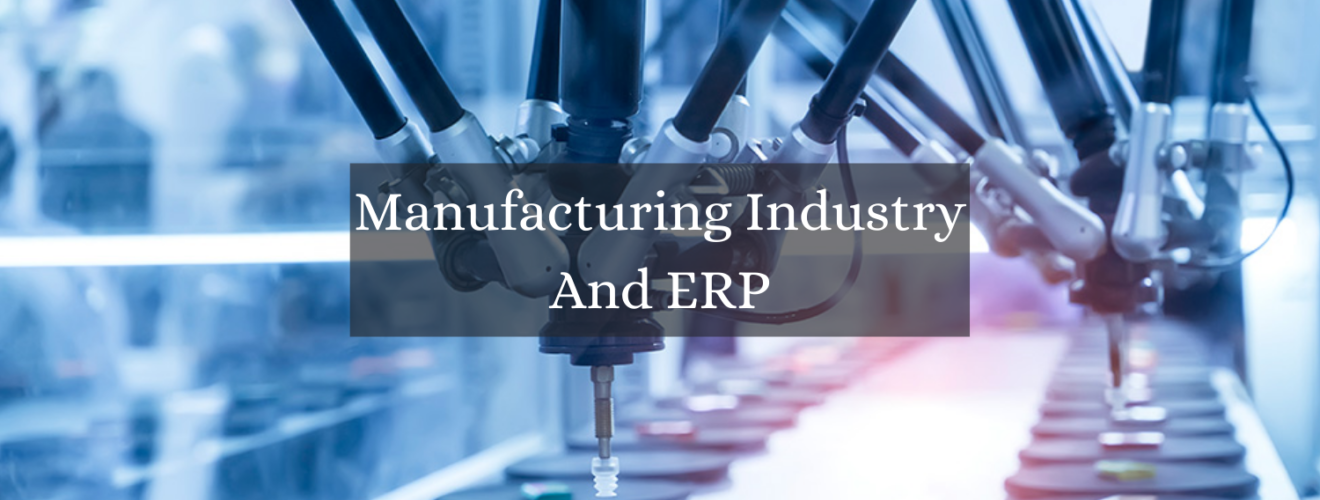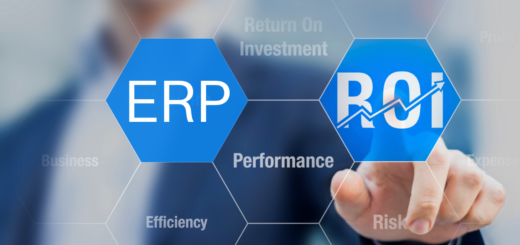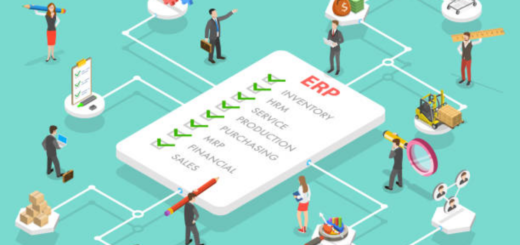8 Common Problems In Manufacturing Industry That ERP Solves

- Are you having trouble getting accurate information about your company?
- Are you striving to maintain maximum inventory?
- Are you finding it hard to lower operation costs?
Manufacturing firms face these and various difficulties in day to day plans. Some complications may vary slightly from industry to industry, but there are some common challenges faced by manufacturing companies across verticals & industries. Here we will discuss how manufacturing companies can leverage ERP Software to improve internal processes and overcome common manufacturing problems for achieving continuous business improvement.
How ERP Solves Common Manufacturing Problems/Challenges?
1. Integration of Operations at various Locations
Some manufacturing firms are spread across various locations and work on diverse systems. This leads to data being present in silos, lack of proper information flow, and inadequate coordination among departments and areas. Companies can’t complete standard processes across the business.
How ERP Integrates Operations / Locations
ERP software integrates all important processes such as planning, production, purchasing, inventory, sales, marketing, finance, human resources and collects data from various departments, locations, and business verticals.
Manufacturing organizations have complete clarity into all processes and the entire company. Manufacturers can now execute companywide policies, establish standard works flow, define rules & guidelines for almost every activity in the business.
2. Lack of Proper Data / Information
When you rely on hand-operated data collection methods for your manufacturing business, you are most likely to encounter the following difficulties
• Lot of time is given to manual data preparation, along with the chance of multiple human errors.
• Delay in reporting information since no mechanism is used to record/capture data instantly.
• Records are never up-to-date, accurate, the inconsistency in data across divisions.
• Creating reports from the data is very time-consuming because of the necessity to adapt & validate.
How ERP Resolves issues of Lack of apt Data/Information
• ERP software collects data across all business means in digital setups.
• ERP provides mobile apps & features to consolidate real-time updates.
• ERP assures up-to-date & consistent data is available across the company.
• ERP stores data in a pivotal section, and that allows easy access anytime from anywhere.
This ensures that accurate information is available to the right people at the precise time to make the appropriate decisions.
3. Ensuring Proper Inventory Control
Manufacturing firms must ensure maximum inventory levels to assure constant production. However, without ERP software, manufacturers do not have full visibility of inventory in the production chain, inventory present in warehouses at various locations, transportation, etc. This results in conditions of overstocking or stock outs and influences production as well as production expenses.
How ERP helps to manage Optimum Inventory management
ERP allows defining and implement standard inventory management practices and processes across the company. You can determine the lead time, reorder points, safety stock, and set up signals & notifications for permissions & authorizations for inventory purchase. You will have real-time, specific knowledge of inventory & things in stock across a company.
4. Low Employee Productivity
Employee productivity & efficiency instantly affects the functioning of the company. Without ERP software, employees consume a lot of time carrying out regular activities, like; paperwork, statutory compliance, data entry, follow up for approvals & authorizations, reconciliation, generating reports, etc. They cannot focus on value-added duties.
How ERP helps to improve employee productivity
• ERP makes reporting easy and fast, saving a notable amount of time for employees.
• ERP decreases paperwork & hand-operated work by digitizing & automating everyday tasks.
• ERP produces e-Approvals via email that speeds up the process and reduces cycle time.
• ERP provides alerts, notifications to develop better communication and coordination.
5. Ensuring Optimum Utilization of Resources
Manufacturing firms must aim to make maximum utilization of resources to obtain cost-effective production. ERP software stores important information about plants, machinery & equipment in the company. ERP defines specific circumstances and triggers alerts for maintenance, regular checks, servicing, inspection, and maintenance. This guarantees plant, machinery & equipment are in great conditions for delivering maximum output.
ERP also renders reports such as Overall Equipment Efficiency reports, Capacity Utilization Report, and Machine Downtime reports. All these contribute insights into whether the utilization is up to the mark and take remedial actions.
6. Supply Chain & On-Time Delivery
ERP software ensures a strong supply chain mechanism that renders the right products, to the right place, in the right volume with the right quality, and at the right price. ERP helps businesses establish material requirement practices, establish long term supply contracts, set up workflows and rules for warehouse management, negotiate prices, ensure quality standards with routine checks, maintain adequate inventory, arrange lists appropriately to speed up production & inspections.
7. Industry Specific Reporting
ERP allows one to define manufacturing KPIs (Key Performance Indicators) for every function of the business. Thus, you can control and watch operations closely, recognize which operations are doing well, and identify improvement fields. ERP also renders reports at detailed intervals for performance review & course correction. You can use the reports created from ERP to analyze how your company operates against the prevailing business standards.
8. Controlling Costs / Reducing Costs
ERP enables businesses to define conventional processes for procurement, inventory administration, and more. This allows companies to spare operational costs, which eventually impacts the profitability of the company.
Moreover, ERP gives real-time, in-depth outlines for various costs acquired by the company. With ERP, you can make reports such as Departmental Expenses, Cost of Materials, Work in Progress (WIP), Cost of Production, Cost of Overheads, etc.
This helps to keep a tight guard on the costs and analyze the trends/pattern of prices.
Summary
ERP software helps streamline and automate business processes. All this helps overcome difficultiesfaced by manufacturing businesses. ERP helps to deliver operational perfectionand gain a competitive edge.
If you are looking for a fully customizable and scalable ERP solution for your business, We at REXO design ERP systems with upgraded features to secure the future growth of your business. REXO ERP is an all-in-one system that can cater for Manufacturers unique requirements and will be an excellent choice. Click to learn more!
Learn more about how to manage your business with Rexo ERP



3 Responses
[…] the unique requirements of the manufacturing enterprise. These vital and adaptable systems can be customised to meet the needs of your manufacturing company– Also, you can choose to buy specific modules […]
[…] conditions is essential for many organizations, especially in niche industries, like specialized manufacturers with one of a kind […]
[…] your providers and incorporate with your inventory to think about timeliness. An ERP framework with supply chain management will help you with doing this. It can deal with various distribution hubs in different locations […]